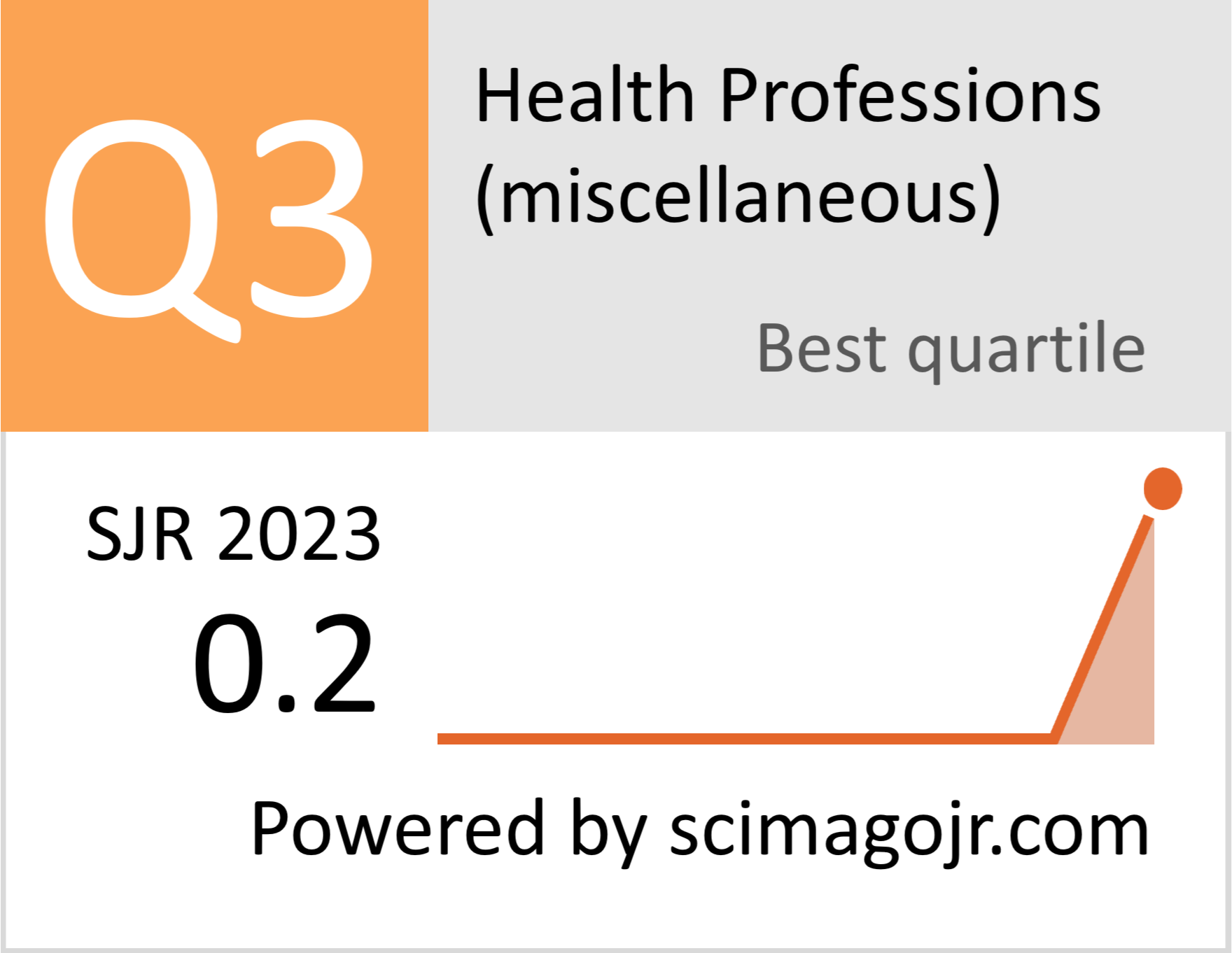Accompaniment of caregivers to the primary school children's school process
Acompañamiento de cuidadores al proceso escolar de niños de básica primaria
This work is licensed under a Creative Commons Attribution-NonCommercial-NoDerivatives 4.0 International (CC BY-NC-ND 4.0).
Show authors biography
The accompaniment provided by caregivers of children in their school process is important for their proper learning. This is stated in the General Law 115 of Education in Colombia. The relationship between reading and writing skills with the school process is also very strong. Qualitative and exploratory study; Through a structured interview, a group of 15 caregivers was asked about the accompaniment and follow-up provided to children of 4th grade of primary school in their school process. The sample was selected intentionally, since it was a group of caregivers of previously identified children with difficulties in reading and wrinting. The accompaniment provided by caregivers of children in their school process is important for their proper learning. This is stated in the General Law 115 of Education in Colombia. The
relationship between reading and writing skills with the school process is also very strong. Qualitative and exploratory study; Through a structured interview, a group of 15 caregivers was asked about the accompaniment and follow-up provided to children of 4th grade of primary school in their school process. The sample was selected intentionally, since it was a It was found that these caregivers had a mostly positive perception of children's school performance, in addition to referring optimal study environments and ways of supporting
reading and writing.
Since for the caregivers both the performance of the children and the conditions of study and accompaniment were good, research should continue on the subject from a deeper investigative point of view.
Article visits 735 | PDF visits 370
- Vygotski L. Obras escogidas. 5 vols. 2ª ed., Madrid: Aprendizaje-Visor, 1997.
- Vygotsky LS. Pensamiento y lenguaje: Teoría del desarrollo cultural de las funciones psíquicas. Buenos Aires, Editorial La Pleyade, 1987.
- Bruner J. El habla del niño: aprendiendo a usar el lenguaje. Barcelona, Editorial Paidós, 1986.
- Bohannon J, Bonvillian J. Theoretical approaches to language acquisition. En: Berko, G.J. (Ed.). The development of language (pp. 259-316). Needham Heights, MA: Allyn & Bacon, 1997.
- Del Río MJ. La adquisición del lenguaje: un análisis interaccional. Estudios de Psicología [Internet]. Informa UK Limited; 1987 Jan; 8(29-30): 11–30. Available from: http://dx.doi.org/10.1080/02109395.1987.10821478
- Acosta V, Moreno A, Axpe M, Quintana A. La indentificación de barreras para el aprendizaje de la lectura entre alumnado de riesgo desde una perspectiva integrada. Revista de Logopedia, Foniatria y Audiología. 2008; 28(4): 231-244. https://doi.org/10.1016/S0214-4603(08)70130-X
- Alegría J. Por un enfoque psicolingüístico del aprendizaje de la lectura y sus dificultades 20 años después. Infancia y Aprendizaje. 2006; 29 (1): 93-111. https://doi.org/10.1174/021037006775380957
- Domínguez AB. El desarrollo de habilidades de análisis fonológico a través de programas de enseñanza. Infancia y Aprendizaje [Internet]. Informa UK Limited; 1996 Jan; 19 (76): 69–81. Available from: http://dx.doi.org/10.1174/021037096762905562
- Jiménez J, Ortiz R. Conciencia fonológica y aprendizaje de la lectura: Teoría, evaluación e intervención. Madrid: Síntesis; 1995.
- González RM, Cuetos F, Vilar J, Uceira E. Efectos de la intervención en conciencia fonológica y velocidad de denominación sobre el aprendizaje de la escritura. Aula Abierta [Internet]. Universidad de Oviedo; 2015 Jan; 43(1): 1–8. Available from: http://dx.doi.org/10.1016/j.aula.2014.06.001
- Moreno A. La intervención en morfosintaxis desde un enfoque interactivo: un estudio de escolares con retraso del lenguaje. Revista de Logopedia, Foniatría y Audiología; 2003; 23 (2): 89-97. https://doi.org/10.1016/S0214-4603(03)75749-0
- Torrado O, Solovieva Y, Quintanar L. Análisis comparativo de la adquisición del proceso lectoescritor ante distintos métodos de enseñanza. Revista Neuropsicología Latinoamericana. 2018; 10 (2): 11-19.
- Bazán A, Sánchez B, Castañeda S. Relación estructural entre apoyo familiar, nivel educativo de los padres, características del maestro y desempeño en lengua escrita. Revista Mexicana de Investigación Educativa [internet] 2007 [Consultada el 17 de septiembre de 2017]; 12 (33): 701-729. Recuperado de: http://www.redalyc.org/pdf/140/14003312.pdf
- Whitehurst G, Storch S. The role of family and home in the developmental course of literacy in children from lowincome backgrounds. En J. J. Brooks- Gunn y P. Britt (Eds.), New directions for child and adolescent development. Family literacy environments. San Francisco: Jossey-Bass, 2001. https://doi.org/10.1002/cd.15
- Ministerio de Educación Nacional, República de Colombia. Ley 115 de febrero 8 de 1994, Por la cual se expide la ley general de educación. Bogotá: [consultado el 27 de octubre de 2017]. Disponible en: http://www.mineducacion.gov.co/1621/article-85906.html
- Stackhouse J. Barriers to literacy development in children with speech and language difficulties. En: D: Bishop y L. Leonard, Speech and language impairments in children (pp.73-98). Hove: Reino Unido, 2000.
- Braslavsky B. Enseñar a entender lo que se lee. La alfabetización en la familia y en la escuela. Buenos Aires: Fondo de Cultura Económica de Argentina; 2005.
- Guralnick, M.J. A developmental systems model for early intervention. Infants and Young Children. 2001; 14: 1-18. https://doi.org/10.1097/00001163-200114020-00004
- Turnbull, A. y Turnbull, H.R. Familia, professionals, and exceptionally: A special partnership. Columbus, OH: Merrill, 2001.
- Bronfenbrenner U. La ecología del desarrollo humano. Barcelona: Paidós, 1987.
- Del Rio MJ. Consideraciones sobre el uso de los procedimientos naturalistas para la intervención en logopedia. Revista de Logopedia, Foniatría y Audiología. 2006; 26: 139-145. https://doi.org/10.1016/S0214-4603(06)70206-6
- Gràcia M. Intervención naturalista en la comunicación y el lenguaje en ámbito familiar: un estudio de cuatro casos. Infancia y Aprendizaje. 2001; 24: 307-324. https://doi.org/10.1174/021037001316949248
- Vilaseca RM, del Río MJ. La intervención en el área del lenguaje: un modelo interactivo y naturalista. Infancia y Aprendizaje 1997; 77(20): 3-18. https://doi.org/10.1174/021037097761403226
- Robledo P, y García J. El entorno familiar y su influencia en el rendimiento académico de los alumnos con dificultades de aprendizaje: revisión de estudios empíricos. Aula Abierta. 2009; 37 (1): 117-128.
- Espitia R, Montes M. influencia de la familia en el proceso educativo de los menores del barrio costa azul de Sincelejo-Colombia. Investigación & Desarrollo [internet] 2009 [consultado el 20 de septiembre de 2017] 17 (1): 84-105. Disponible en: http://www.redalyc.org/pdf/268/26811984004.pdf




